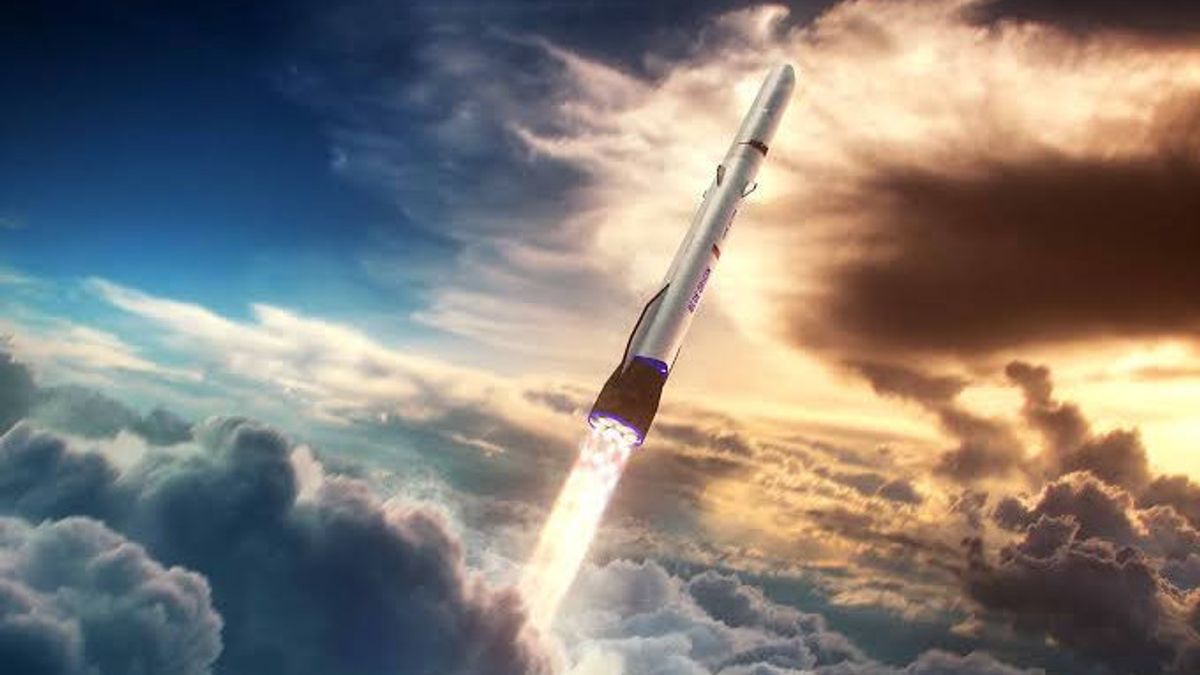JAKARTA - Blue Origin finally had the opportunity to showcase the greatness of the New Glenn rocket, which competed with SpaceX thanks to its new agreement with the United States Space Force (US).
The agreement was marked by the signing of the Cooperative Research and Development Agreement (CRADA) on November 18, which would pave the way for New Glenn rockets to compete in the national security launch contract after completing the required flight certification.
Keep in mind, CRADA is not government-funded and because New Glenn is still under development, Blue Origin has no target date for the first launch.
CRADA has a National Security Space Launch Program (NSSL), and according to him it requires newcomers such as Blue Origin to carry out at least two successful orbital launches in order to get certification.
The agreement was signed by program executive officials to ensure access to space, Brigadier General. General Stephen Purdy and senior vice president for New Glenn at Blue Origin, Jarrett Jones.
"CRADA marks the resumption of certification activities for New Glenn Blue Origin which began in 2018 when Blue Origin won the Launch Service Agreement (LSA)," said Purdy.
The US Space Force suspended LSA in December 2020 after Blue Origin lost to United Launch Alliance (ULA) and SpaceX in the NSSL Phase 2 launch service competition.
The LSA 2018 agreement given to Blue Origin and other companies at the time was a public-private partnership, in which both sides agreed to invest in the development of rockets and infrastructure needed to compete in the national security space launch contract.
From October 2018 to December 2020, Blue Origin was paid USD 255.5 million, equivalent to IDR 4.0 trillion. The original six-year agreement is worth USD 500 million, equivalent to IDR 7.8 trillion.
In exchange for investment, Blue Origin was asked to grant limited rights to data and hardware developed by the company under an agreement.
With this new CRADA, the US Space Force hints at its desire to see Jeff Bezos' space company challenge ULA and SpaceX when their five-year contract is ready to compete again in 2024. Demand for offerings for the NSSL Phase 3 can be released in 2023.
"This agreement paved the way for Blue Origin to compete in the next NSSL launch service competition and is an example of how we encourage competition and increase industrial innovation," said Purdy.
"I'm looking forward to Blue Origin completing the development of New Glenn and competing for the opportunity to win the NSSL launch service," he added.
Launching SpaceNews, Monday, November 21, Blue Origin in recent months has not commented on when New Glenn can complete development or when it will launch its first.
The English, Chinese, Japanese, Arabic, and French versions are automatically generated by the AI. So there may still be inaccuracies in translating, please always see Indonesian as our main language. (system supported by DigitalSiber.id)








